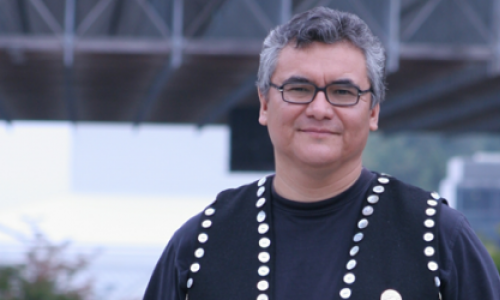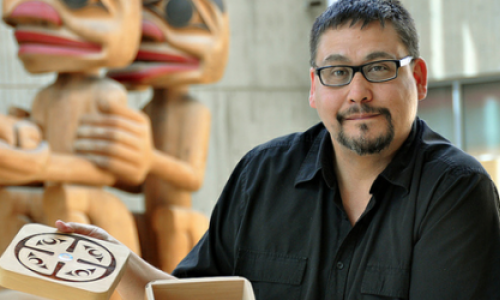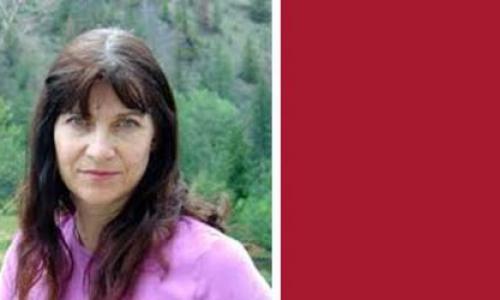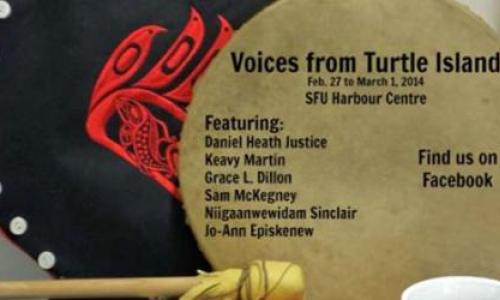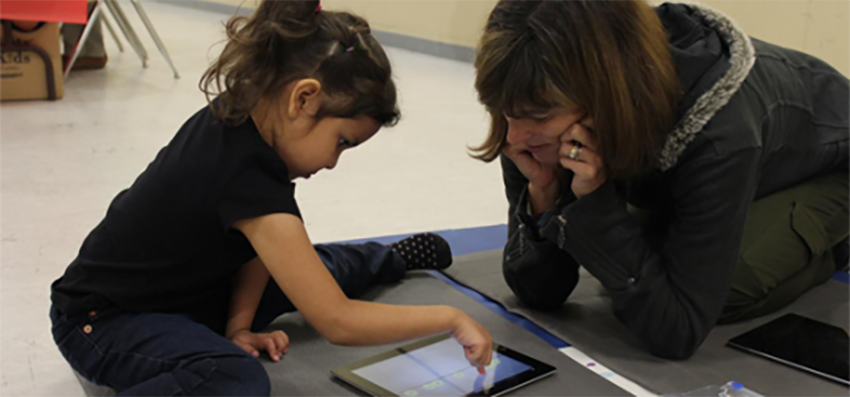
SFU mathematics education professor Nathalie Sinclair has been working with the Ojibwe and Nuu-chah-nulth First Nations to translate her early-numbers mathematics app into their languages. Called TouchCounts, the free app lets children use their fingers, ears and eyes to more easily learn to count, add and subtract.
The app is very different from traditional drilling and repetition games. Instead, it lets children create and manipulate their own numbers. For example, when they tap once on an iPad screen, up pops one circle with the numeral 1 depicted in it. At the same time, they hear the word “one”. “The idea is to help children make a correspondence between the quantity, the symbol, the touch and the sound,” explains Sinclair. “If they touch the screen once with one finger, they see one circle and the numeral 1, and they’re hearing the word. If they tap the screen with two fingers simultaneously, they’ll see two circles—one with the numeral 1 on it and the other with the numeral 2, and hear the word “two.” Every time they touch the screen, they get the next number in the sequence.” Sinclair, who holds a Canada Research Chair in Tangible Mathematics Learning says, “You can see the learning happening right before your eyes.” The idea of translating the app into First Nations languages struck Sinclair during a visit to Fort Frances, Ontario last year with a team from the Ontario Institute for Studies in Education. She went along to try out TouchCounts with children at the Aboriginal Headstart program and present it to their teachers. While she was playing with the kids and demonstrating the app, one of the educators started repeating the numbers in Ojibwe.
With the prompting of elder Nancy Jones of Nigigoonsiminikaaning First Nation, she realized TouchCounts needed to be translated into Ojibwe. “With the help of Jason Jones, the Ojibwe language curriculum coordinator for the Rainy River District School Board, I was able to record Lee, Jason’s young nephew, saying the words in Ojibwe, and when I returned to SFU we started working on the prototype.”At the same time, she began exploring how to approach B.C. First Nations about translating the app, and met with the First Nations Education Steering Committee. “They liked the idea and the project. Early-number learning and language revitalization is pretty much a dynamite combination.” Next, Sinclair presented TouchCounts to educators attending an Aboriginal mathematics day at UBC where Elisa Cha, a teacher from Zeballos Elementary Secondary School, expressed interest.So Sinclair and Nick Jackiw (the lead software designer and application programmer) travelled to the tiny village on Vancouver Island’s northwest coast last May, with the guidance of language coordinator Victoria Wells. They discovered the school had tremendous technology resources, and that the students were very accustomed to using iPads. “The kids loved the app,” she says. “They were curious and took great pleasure in making big numbers.”The app is designed to feature children speaking the numbers. But getting children to say the numbers at the same pitch and volume in a consistent way is not easy, and it’s all the more difficult when they are just learning to speak in their First Nations language. And since so few people speak these languages, there are concerns about whether the words are being pronounced correctly. In Zeballos, Wells helped Sinclair and Jackiw find 10-year-old Aliya Mack to record as many words as she could, but they only made it to 30. They are planning to return in January 2016 to record the rest of the numbers with Mack, who has been practicing. Sinclair says one of the most interesting aspects of the project has been discovering how differently the Nuu-chah-nulth and Ojibwe languages structure their numbers, which reveals subtle differences in the way different cultures conceive the concept of number. “That is a big goal of doing this work too—to preserve different ways of thinking about numbers.”
Beyond the Blog
-
Sinclair would like to hear from other First Nations interested in having the app translated. Her email is: nathsinc@sfu.ca
-
To try out the free app, download it from the App Store (search TouchCounts) visit the website at www.touchcounts.ca
-
See the app in action on YouTube










